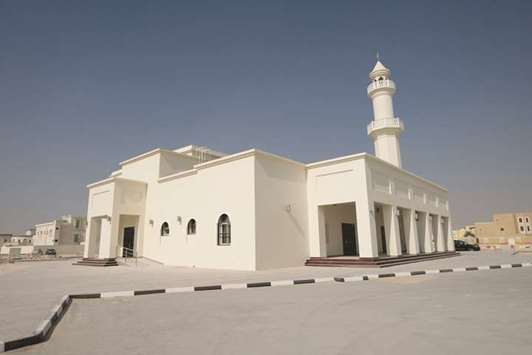Eid prayer is a strongly recommended and important act of worship in Islam and the Prophet, sallallaahu ‘alaihi wa sallam, never neglected it. The Prophet is reported to have ordered men, women and children to proceed to the Eid prayer ground.
Even menstruating women are encouraged to attend the Eid sermon but they should keep away from the prayer area.
It is highly recommended to have ritual ablution (Ghusl) and to wear the most beautiful garments and the best perfumes one possesses.
It (i.e., the Eid Prayer) consists of two Rak’ahs (unit of prayer). Ibn ‘Umar, may Allah be pleased with him, said: “The journey prayer consists of two Rak’ahs, the Adh-Haa prayer consists of two Rak’ahs, and the Fitr prayer consists of two Rak’ahs as well, and they are complete prayers not shortened according to what the Prophet, sallallaahu ‘alaihi wa sallam, said.”
The first Rak’ah begins with the Takbeer [saying: Allaahu Akbar (Allah is the Greatest)] as the case is in all other prayers. Then Imaam (followed by the praying Muslims) recites seven Takbeeraat (plural of Takbeer). In the second Rak’ah there are five Takbeeraat other than the transmission Takbeer (i.e., the one recited when the Imam and the praying Muslims stand up to perform second Rak’ah). ‘A’ishah, may Allah be pleased with her, said: “The Prophet, sallallaahu ‘alaihi wa sallam, used to recite Takbeer in (the prayers of Eid) Al-Fitr and Al-Adh-Haa, seven Takbeeraat in the first (Raka’ah) and five in the second one other than the two Takbeeraat that precede the Rukoo’ (bowing).”
Imaam Al-Bahawi, may Allah have mercy upon him, said: “This is the opinion of most of the well-versed scholars of the Companions, may Allah be pleased with them all, and those who followed them that there are seven Takbeeraat in the first Rak’ah of the Eid prayer other than the first Takbeer (Takbeeratul Ihram), and five Takbeeraat in the second Rak’ah other than the transmission Takbeer and all before reciting (verses from the Glorious Qur’an). This was narrated from Abu Bakr, ‘Umar, ‘Ali, may Allah be pleased with them, and others.”
When the Prophet, sallallaahu ‘alaihi wa sallam, was done with the Takbeeraat, he used to recite the Faatihah (the first chapter) of the Holy Qur’an) then he recites “Qaaf, By the Glorious Qur’an,” [chapter 50] in the first Rak’ah and Al-Qamar [chapter 54] in the second one.
Sometimes he, sallallaahu ‘alaihi wa sallam, used to recite Al-’Alaa Surah [chapter 87] in the first Rak’ah and Al-Ghashiyah Surah [chapter 88] in the second one.
The rest of the acts of the ‘Eed prayer are as those of any other prayer; nothing is different.
It is of the Prophetic Sunnah that the Eid sermon should follow the Eid prayer.

GULF TIMES
